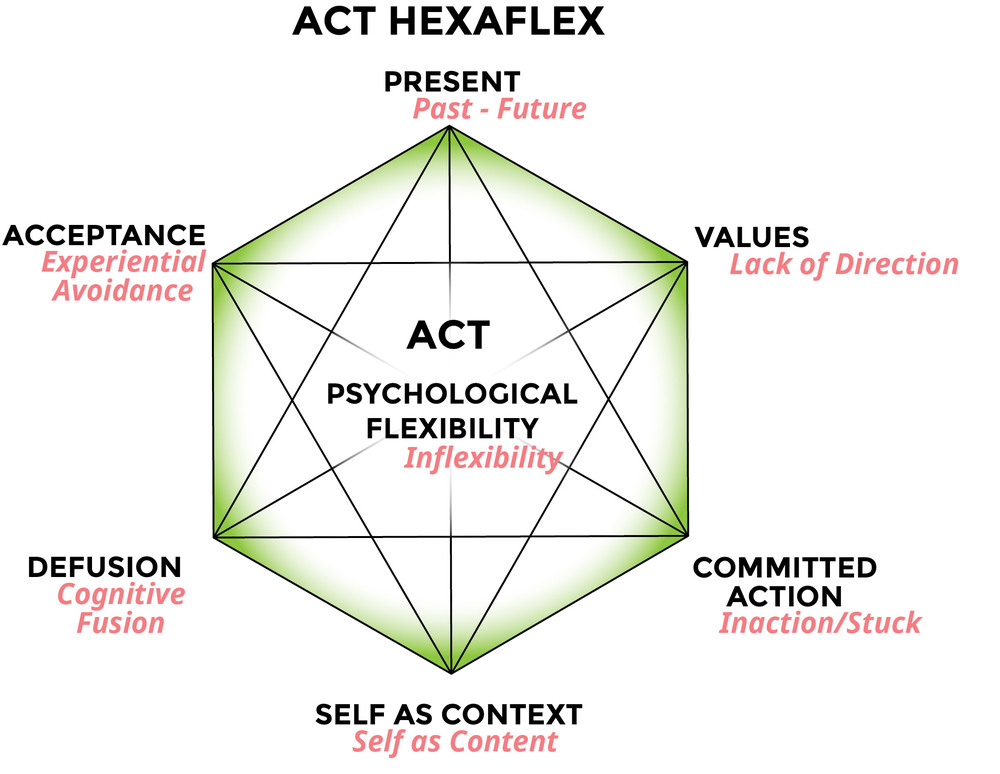Je winkelwagen is momenteel leeg!
About Acceptance and Commitment Therapy
What is Acceptance & Commitment Therapy?
How to explain something that is simple and can be as complex as you would like it to be? The most basic way to explain Acceptance and Commitment Therapy (ACT) is that one should ‘do what works’. Another way would be to trace how ACT emerged from cognitive behavioral therapy and is aimed at implementing one’s own values into daily life. It combines Western scientific understanding of the mind with the deep knowledge from the East: such as the practice of mindfulness and acceptance of the road we walk upon.
ACT focuses on creating a balanced and flexible psychological being, aimed at identifying survival mechanisms and avoidance techniques that in the long run only muddle the water. Human life can be thought of as fulfilling when focused on one’s own core values, uninhabited by fusion with thoughts, while not lingering in the past or the future, and having a healthy perspective of the self.
If this sounds like mumble jumble, don’t worry. ACT is also very much about acting, acting on dealing with life instead of walking away from problems. ACT is new in the way that it gives words and concepts to things that are actually pretty obvious. Many of the concepts used can be found in philosophy.

Acceptance and Commitment Therapy is a way of approaching life, an attitude. ACT is aimed at long-term goals while remaining very much attentive to the present.
Want to know more? Perhaps the best way is to experience it. Contact me to schedule an intake where you may already experience what ACT in combination with working with artistic methods can mean for you.
Interesting books to consider on this topic:
- The Happiness Trap, by Russ Harris (English)
- ACT made simple, by Russ Harris (English)
- Acceptatie en Commitmenttherapie in de praktijk, door Russ Harris (Nederlands)